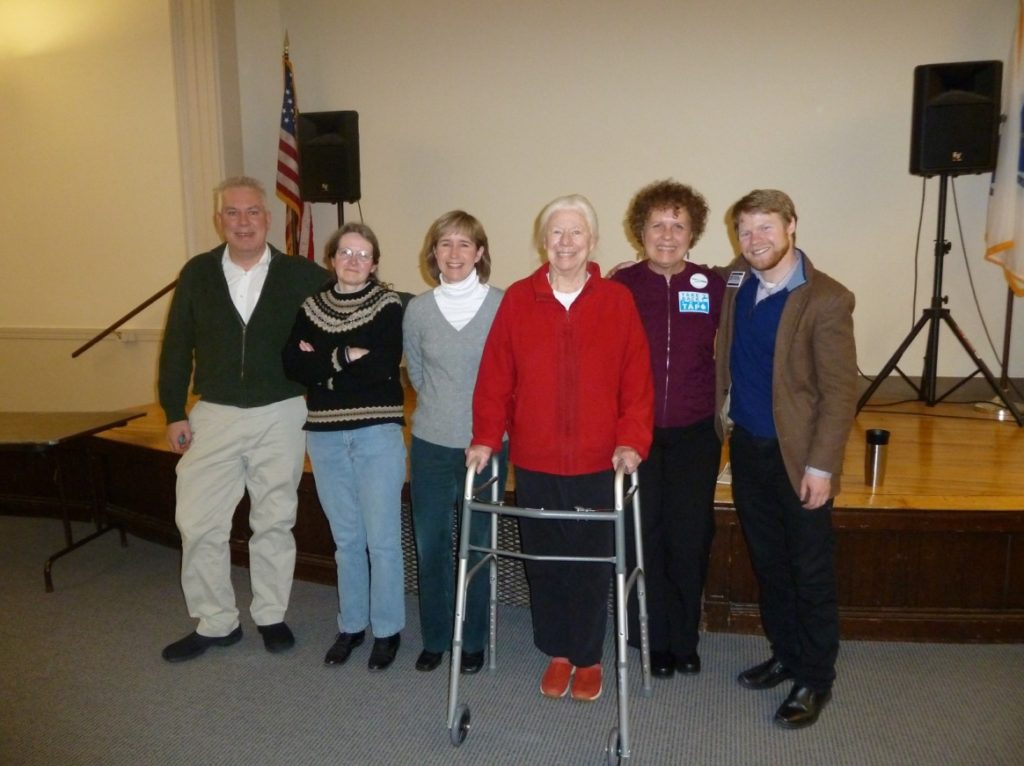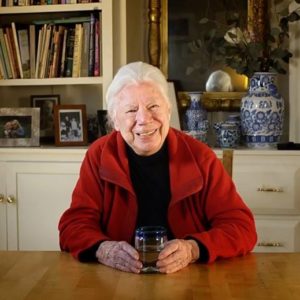Jean Hill was already 82 years old and a grandmother when she had a very big idea: Why not make her hometown of Concord, Massachusetts the first bottled-water-free town in the United States?
I’ll never forget the first time I talked to Jean. The year was 2010, and I was a young organizer for Corporate Accountability working on our water campaign. We were coming off several years of consistent victories moving cities and states to “think outside the bottle,” taking a range of progressive actions from launching public education campaigns promoting the tap to ending the purchase of bottled water with public funds. So I wasn’t surprised when I got a call from Jean asking for support to start a similar campaign in Concord.
What did surprise me, though, was that Jean was proposing to end the sale of bottled water in Concord outright. Jean’s vision was groundbreaking: ending the sale of single-serve plastic water bottles across the entire New England town. And this was no pie-in-the-sky fantasy: In fact, she had already drafted the language for a new ordinance — and gotten it onto her town meeting’s agenda!
And so began a campaign and a partnership that would ultimately make Concord, Massachusetts the first town in the U.S. to go completely bottled water free, inspiring people across the country to join the bottled-water-free movement, and sparking a national conversation about the folly of bottled water. Jean and her allies were even the subject of a feature-length documentary.
That initial phone call led to dozens and dozens more. Over the next year and a half, I made the trek from Boston out to Concord countless times: to gather petitions, hold strategy meetings, and meet with people like Jill Appel who were powering the campaign from behind the scenes. Once the bottled water industry started pouring resources into defeating the ban, we knew we were onto something big — and we put our heads together to craft our plan to beat the bottlers.

We were sitting in Jean’s living room one afternoon when I asked her why, at 82, she was so committed to this campaign. “It’s the right thing to do,” she said. “Our planet needs me to do this.”
She said she just couldn’t believe that corporations like Nestlé, Coke, and Pepsi were trying to turn something as precious as water into a commodity to be bought and sold — and trashing the environment in the process.
Thanks to Jean’s determination and fearlessness, her campaign was a huge success. Not only did the campaign end the sale of bottled water in Concord — she inspired people across the country to organize their communities to buck the bottle.
We lost a dear friend, devoted member, and organizing dynamo when Jean passed away late last year.
I learned so much from Jean in those few years. She showed me that, no matter how old or young you are, the right time to organize for justice is now. She showed me that by holding on to a vision of a better world, you can expand the realm of what’s possible and make a lasting impact. And she showed me that, even when you’re facing down transnational corporations like Nestlé, you can still have fun. Did I mention that Jean was hilarious?
I will miss Jean so much, and I’m deeply grateful to the Hill family for preserving her incredible legacy. Jean embodied the best qualities of the Corporate Accountability community — she was passionate, committed, and uncompromising. And she inspired me, our staff here at Corporate Accountability, and people around the country to dedicate themselves to creating a more just, sustainable world.
—
You can continue Jean’s legacy by taking action on our water campaign. Call on our national parks to stand up to Trump and the bottled water industry and go bottled water free. And to take ongoing action to challenge corporate power and advance the human right to water, join the Action League.
Photo 1: Jean’s campaign was the subject of the documentary, Divide in Concord. This photo comes from the film. Credit: Kris Kaczor.
Photo 2: Here’s Jean (third from right) in 2011 with other members of the Concord campaign and Deputy Campaigns Director John Stewart (right).




